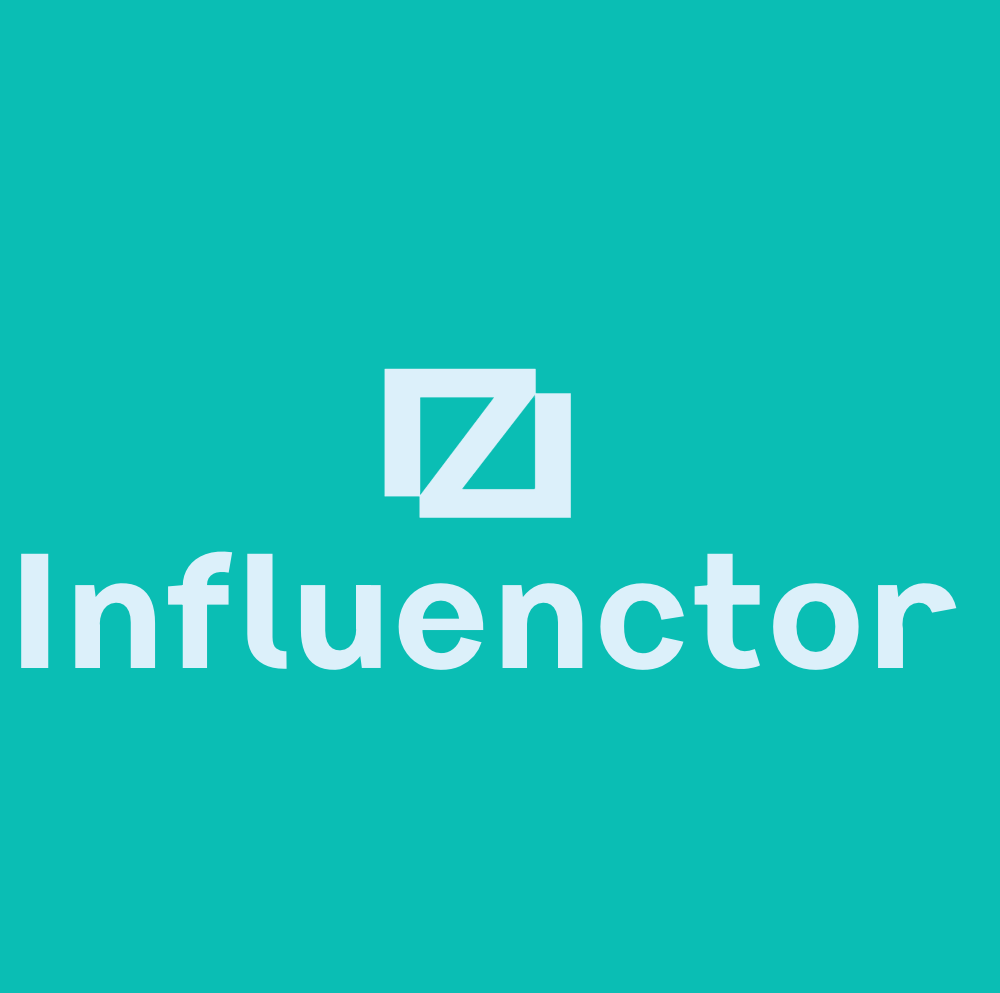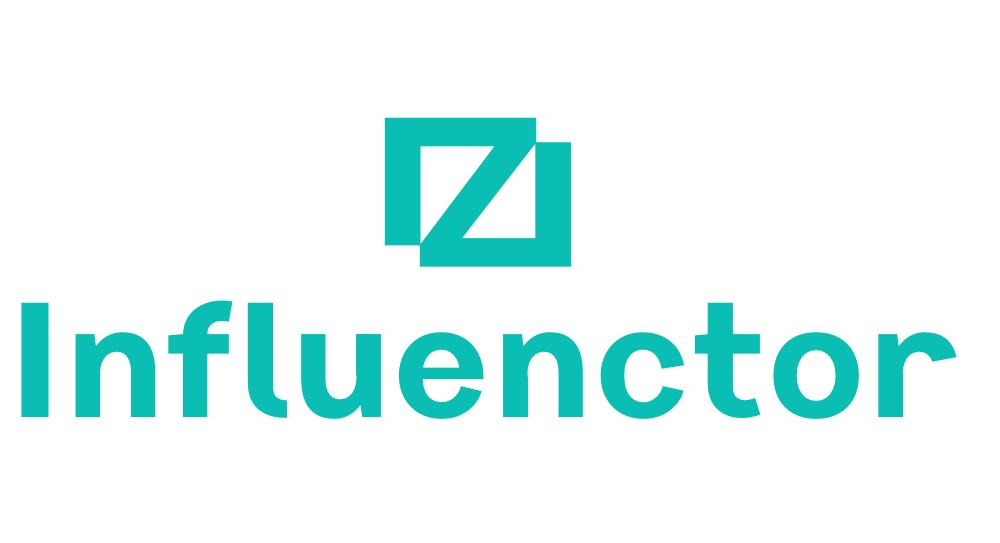Personalized Email Strategies
Top Email Campaign Segmentation Strategies for Personalization
Strategize your email campaigns with powerful segmentation techniques to drive personalized engagement and conversions. Uncover the secrets to effective email personalization.
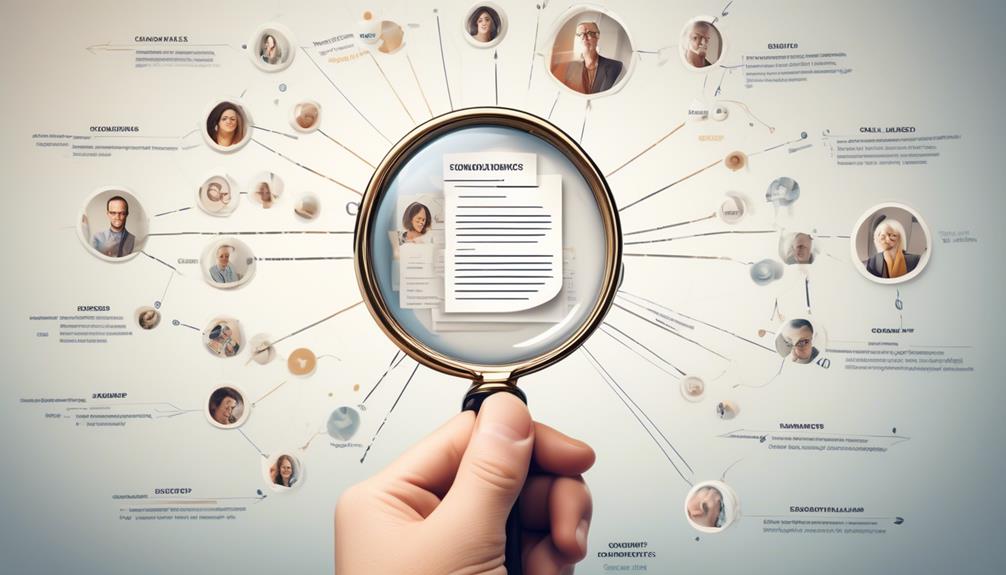
Chances are, you’ve received an email that felt tailor-made for you, resonating with your unique needs or interests. This kind of personal touch isn’t a random occurrence; it stems from the successful deployment of email segmentation tactics.
Imagine being able to send targeted emails to different customer segments based on their behaviors, preferences, or demographics. The impact on engagement and conversion rates can be significant.
But how exactly can you achieve this level of personalization in your email campaigns? Let’s explore some top email campaign segmentation strategies that can help you tailor your content to your audience in a way that resonates with them on a deeper level.
Key Takeaways
- Understanding email segmentation is crucial for effective personalization in email campaigns.
- Setting specific segmentation goals helps in targeting the right audience and achieving desired outcomes.
- Personalized email campaigns have numerous benefits, including increased engagement, conversion rates, and customer satisfaction.
- To implement segmentation, it is important to identify relevant data points, analyze customer behavior, and create targeted content based on automation, purchase history, demographics, and engagement data.
Understanding Email Segmentation
To effectively utilize email segmentation in your marketing strategy, it’s vital to understand the underlying principles and benefits of this targeted approach.
Email segmentation involves dividing your subscribers into specific, targeted groups based on criteria such as demographics, behaviors, preferences, spending habits, and more. This allows for the delivery of personalized content and offers to each group, increasing the relevance and effectiveness of your email marketing campaigns.
By segmenting based on customer behavior, lifecycle stage, and purchase history, you can effectively target specific groups of customers and tailor your content to their needs and interests.
The key benefit of email segmentation is the potential for higher conversion rates and increased revenue. Studies have shown potential increases of up to 760% in revenue from segmented campaigns. Additionally, email segmentation enables you to deliver personalized content, improve engagement, and nurture leads through targeted campaigns.
It provides the opportunity to send specific content to specific groups, ensuring that your emails are more relevant and valuable to your subscribers. Understanding and implementing email segmentation can significantly enhance the performance and impact of your email marketing efforts.
Setting Segmentation Goals

Define clear and measurable segmentation goals to guide your email campaign strategy effectively. Setting segmentation goals is crucial for achieving success in email marketing. Here are five key elements to consider when setting your segmentation goals:
- Specific Outcomes: Determine the specific outcomes you want to achieve through segmentation, such as increased open rates, higher engagement, or improved conversion rates.
- Alignment with Marketing Objectives: Ensure that your segmentation goals align with your overall marketing objectives to contribute to your business’s success.
- Tailored Content and Messaging: Utilize segmentation goals to tailor content, offers, and messaging to different audience segments for more personalized and effective communication.
- Regular Assessment and Adjustment: It’s important to regularly assess and adjust your segmentation goals based on campaign performance and evolving customer preferences and behaviors.
- Utilization of Customer Data: Use customer data to create new lists and send targeted, personalized emails based on your segmentation strategy.
Identifying Relevant Data Points
To effectively segment your email list, you need to pinpoint the most relevant data points that will help you understand your customers better.
Analyzing customer behavior, preferences, and engagement levels will provide valuable insights for creating targeted segments.
Data Points for Segmentation
How can you effectively identify the relevant data points for email segmentation to enhance personalization and tailored content?
When segmenting your email list, consider utilizing a combination of demographic segmentation, behavioral segmentation, and customer lifecycle stage as key data points.
Additionally, incorporating data points such as purchase history, customer interests, and engagement level can further enhance the effectiveness of your segmented lists.
To ensure personalized content, continuous analysis and refinement of these data points are essential to align with customer preferences and behavior.
Customer Behavior Analysis
By analyzing customer behavior, you can pinpoint relevant data points crucial for effective email segmentation, allowing you to tailor your marketing campaigns with precision and relevance.
Customer behavior analysis is the foundation of successful email list segmentation. It involves examining how your audience interacts with your emails, website, and products. By understanding their preferences, purchase history, browsing patterns, and engagement levels, you can segment your email list based on their specific interests and actions.
Behavioral segmentation is the practice of dividing your audience into groups based on their behaviors, enabling you to send targeted and personalized content.
To optimize your email marketing best practices, segmenting your email list is essential. Use the data from customer behavior analysis to segment your list and deliver highly relevant and engaging content to your audience.
Targeted Content Creation
When identifying relevant data points for segmentation, you can strategically automate the capture of crucial information within your email service provider to facilitate effective targeted content creation. By doing so, you can ensure that your email marketing efforts are tailored to the specific interests and behaviors of your customers.
Here’s how you can identify the most relevant data points for creating personalized content:
- Utilize purchase history and browsing behavior to send targeted product recommendations.
- Segment customers based on demographics such as age, gender, location, and income level.
- Leverage email engagement data to create new and engaging content for specific audience groups.
- Use survey responses and feedback to tailor content that addresses the unique needs and preferences of different segments.
- Analyze click-through rates and open rates to refine your segmentation and send more relevant content.
Automating Data Capture

Automating data capture is essential for streamlining the process of gathering and managing customer information.
By automating data capture, businesses can ensure the accuracy and efficiency of customer records, thus saving time and resources.
This strategy enables personalized email campaigns by allowing for segmentation based on real-time customer insights and the creation of dynamic, targeted content.
Data Collection Automation
To enhance the effectiveness of your email campaign segmentation, implementing data collection automation is a strategic and efficient approach. By utilizing automation tools, you can streamline the process of gathering and organizing data from various touchpoints, such as interactions with your website, into a centralized system. This ensures that you can collect data from specific groups and engage subscribers more effectively.
Automating data capture not only ensures accuracy but also reduces manual effort and provides real-time insights for targeted segmentation. With continuous accumulation of valuable customer data, you can personalize your email campaigns based on psychographic segmentation and improve the overall effectiveness of your marketing automation efforts.
Incorporating data collection automation improves efficiency and scalability in managing customer information for segmentation and personalization.
- Streamline data gathering and organization
- Collect data from specific groups
- Reduce manual effort and ensure accuracy
- Provide real-time insights for targeted segmentation
- Improve scalability in managing customer information
Segmentation Based on Data
Implementing data collection automation has revolutionized the way businesses gather and organize customer information. This technology enables more personalized and targeted email campaigns based on identified data points.
By automating segmentation, businesses can create segments based on specific customer behaviors, preferences, and interactions. This allows for highly personalized email campaigns. Utilizing if/then statements, businesses can automate the capture of data such as email engagement, website behavior, purchase history, and product activity.
This automation helps in identifying relevant data points for segmentation, ensuring that the right content reaches the right audience. Businesses can create segments based on psychographic segmentation, purchase history, income level, and website visitors. This allows for tailoring email content to resonate with each segment.
Automating data capture empowers businesses to send personalized content that drives engagement and conversions.
Personalized Content Creation
By automating the capture and analysis of customer data, you can effectively tailor your email content to resonate with specific segments, driving higher engagement and conversions. Utilize segmentation to create personalized and highly relevant content that will interact with your emails.
Implement psychographic segmentation to understand the motivations and preferences of different customer segments. Use segmentation to craft segmented emails that cater to the specific needs and interests of your audience. Tailor your content based on the insights gained from segmented data, ensuring that each email speaks directly to the recipients’ interests.
Implement automated data capture to streamline the process of gathering and organizing customer data, enabling targeted and personalized content creation.
Creating Segments in ESP
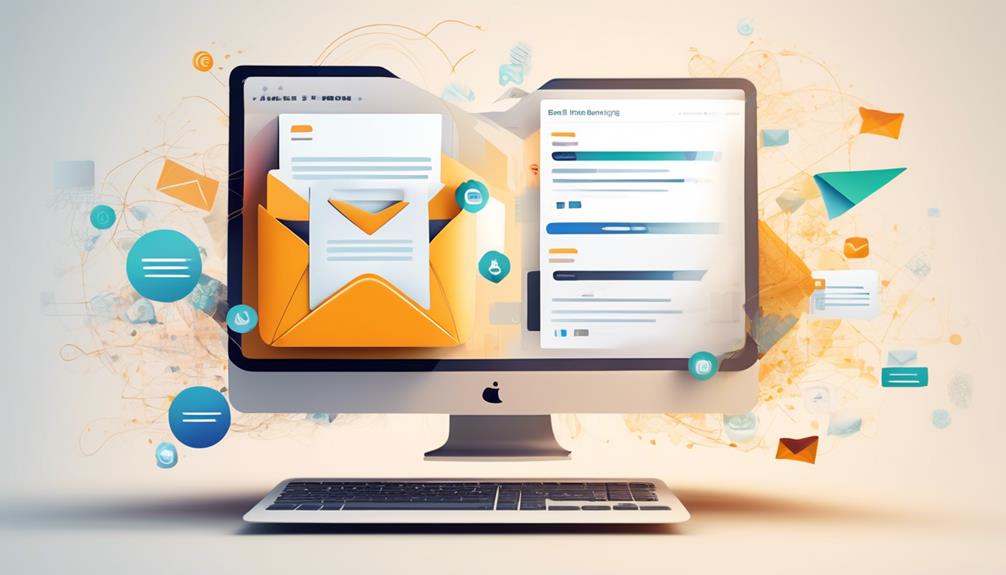
Leverage the if/then statement capabilities of your ESP to automate segmentation processes based on specific user actions or characteristics, facilitating targeted and personalized email campaigns.
Marketers use email service providers (ESPs) to create segments based on various data points such as demographics, behavior, and psychographic segmentation. By splitting your email list into groups based on these segments, you can tailor your content to resonate with each segment, resulting in higher engagement and conversion rates.
Creating segments in ESP allows you to deliver relevant content to engaged subscribers, leading to increased revenue from segmented campaigns. To achieve this, identify relevant data points and automate their capture within your email service provider. Implement clear goals and strategies within your ESP to enhance your segmentation system and overall email campaign effectiveness.
Crafting Segment-Specific Emails
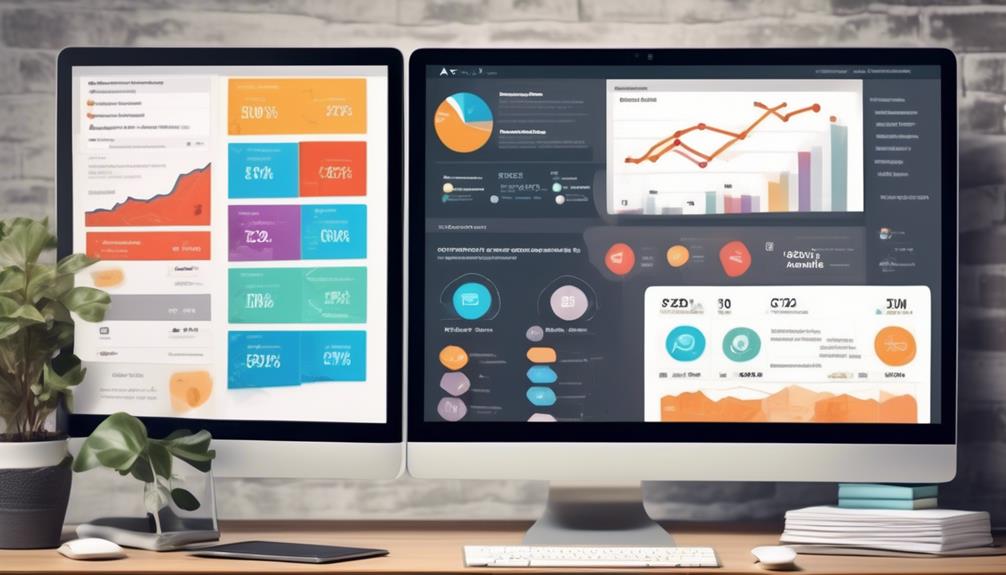
To ensure your segmented email campaigns effectively resonate with specific user groups, crafting segment-specific emails is crucial for engaging and converting each segment based on their unique interests and preferences.
Tailoring your email content to match specific segments’ interests and preferences is essential for driving engagement and response rates. Personalizing offers and promotions based on each segment’s behavior and past interactions can significantly increase email engagement and conversion.
Using dynamic content and targeted messaging allows you to deliver more relevant and personalized content to each segment, leading to higher response rates and improved customer satisfaction.
Implementing creative methods to gather data and insights for better segmentation and personalization is crucial for refining your email strategy and optimizing your email design for each segment.
Continuously analyzing and refining segments based on customer behavior and preferences is key to ensuring that your email marketing segmentation remains effective and relevant over time.
Demographic Segmentation Strategies
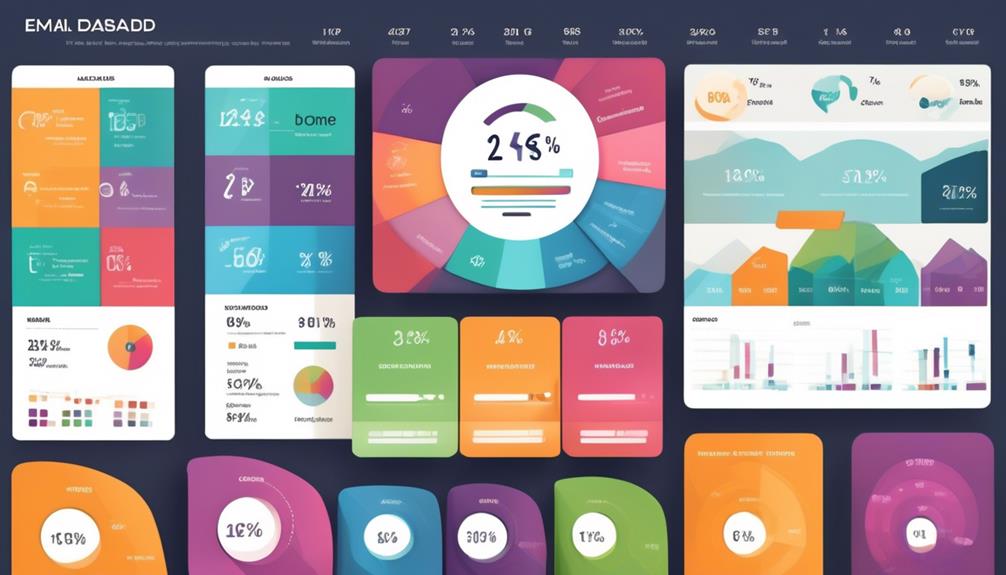
When implementing demographic segmentation strategies, consider categorizing subscribers by age, gender, location, or income level to target specific groups effectively. Demographic segmentation allows email marketers to tailor content and offers aligned with customer profiles, resulting in higher open rates and engagement. By segmenting subscribers based on demographic data, you can send targeted emails that resonate with the unique characteristics of each group, thereby increasing the likelihood of conversions and customer satisfaction.
| Demographic | Description | Example |
|---|---|---|
| Age | Categorize subscribers based on their age group | 18-25, 26-35, 36-45, 46-55, 55+ |
| Gender | Segment subscribers based on their gender | Male, Female, Non-binary, Prefer not to say |
| Location | Target subscribers based on their geographical location | Country, State, City |
| Income Level | Segment subscribers based on their income level | Low income, Middle income, High income |
| Education | Categorize subscribers by their educational level | High school, Bachelor’s degree, Master’s degree |
Behavioral Segmentation Best Practices
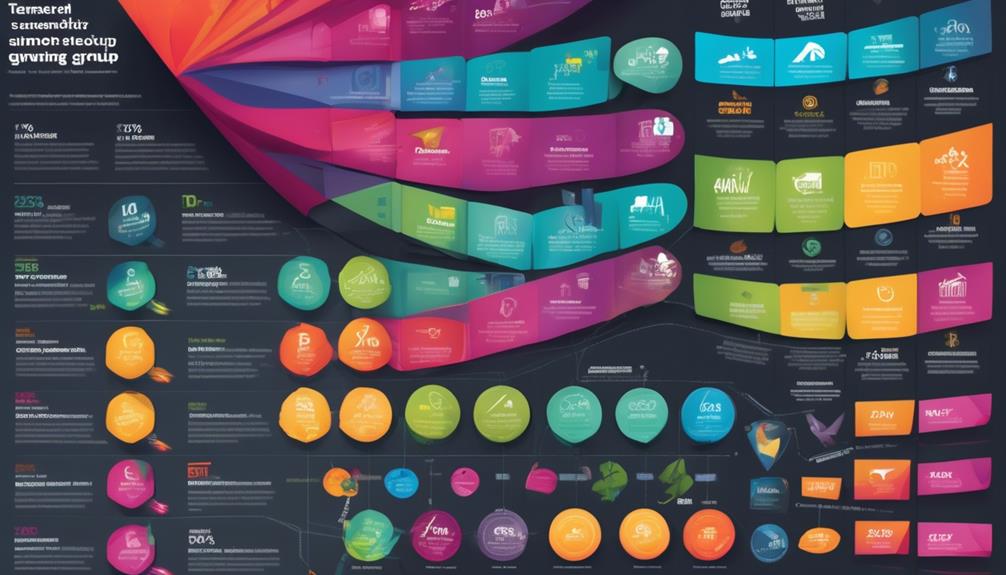
By analyzing the actions and interactions of your subscribers, you can implement behavioral segmentation strategies to further personalize your email campaigns and drive greater engagement and conversions.
Utilize your marketing platform to segment your subscribers based on their behavior, such as their past purchases, website visits, email opens, and clicks. This allows you to create segments for people who’ve shown interest in specific products or services, enabling you to send your next email with tailored content that caters to their preferences.
Additionally, consider segmenting based on how frequently subscribers engage with your emails, allowing you to tailor the frequency of emails to match their preferences.
Use behavioral segmentation to create a segment for subscribers who’ve abandoned their shopping carts, and send targeted emails with incentives to encourage them to complete their purchase.
Furthermore, segment subscribers to take specific actions, such as leaving a review or referring a friend, and send personalized emails to prompt them to take the desired action.
Incorporating these behavioral segmentation best practices will elevate the effectiveness of your email campaigns.
Frequently Asked Questions
What Is the Best Way to Run Segmented Email Campaign?
To run a segmented email campaign effectively, there are several steps you should follow:
- Define clear goals and identify relevant data points. This will help you understand the specific objectives of your campaign and the data you need to collect to achieve those goals.
- Automate data collection and use if/then statements to create targeted segments. By collecting data automatically and using if/then statements, you can create segments based on specific criteria, such as demographics, past purchase behavior, or engagement with previous emails.
- Write tailored emails for each segment and personalize by addressing subscribers by name. Once you have your segments created, you can craft emails that are specifically targeted to each group. Personalization, such as addressing subscribers by their name, can also help increase engagement.
- Encourage subscribers to set preferences during sign-up. During the sign-up process, provide options for subscribers to choose their preferences and interests. This will allow you to further segment your email list and send more relevant content.
How Do You Segment and Personalize Email Campaigns to Target Specific Audience Groups?
To segment and personalize email campaigns, there are several steps that need to be followed.
First, it is important to identify specific audience groups based on demographics, behavior, and relationships. This can be done by analyzing data and understanding the characteristics of different customer segments.
Next, utilize if/then statements and various segmentation strategies for automated email segmentation. This involves setting up rules and conditions that will automatically place customers into specific segments based on their actions or characteristics.
Once the segments have been created, it is important to optimize campaigns by setting goals, capturing relevant data, and creating tailored emails. This involves understanding the objectives of the campaign and using data to inform the content and design of the emails.
Finally, it is important to implement specific segmentation strategies such as demographic, psychographic, relationship-based, behavioral, and personalized workflows for effective personalization. This ensures that the content of the emails is relevant and engaging to different audience segments.
What Is the Most Effective Email Marketing Campaign Strategy?
The most effective email marketing campaign strategy involves comprehensive segmentation and personalized content. By dividing your audience based on demographics, behaviors, and preferences, you can tailor your messages for maximum relevance.
Utilize dynamic content and targeted offers to capture attention and drive action. Emphasize customer-centric communication, aiming to provide value and build relationships.
Continuously analyze and refine your strategies to ensure ongoing success and engagement.
What Are the 7 Email Marketing Strategies?
To effectively target your audience, consider these 7 email marketing strategies:
- Segment your email list based on demographics, behaviors, preferences, spending habits, and location.
- Craft personalized and relevant content.
- Use compelling subject lines.
- Optimize for mobile devices.
- Incorporate interactive elements.
- Test and analyze your campaigns.
- Continuously refine your approach based on data-driven insights.
These strategies will enhance engagement and drive higher conversion rates for your email campaigns.
Conclusion
As you implement email segmentation strategies, think of each segment as a unique puzzle piece that fits perfectly into your overall marketing strategy. By understanding the nuances of your audience and creating tailored content, you can build stronger relationships and drive better results.
Just as a skilled artist carefully selects the right colors to bring a painting to life, your strategic use of segmentation can breathe new life into your email campaigns, creating a masterpiece of personalized communication.
Erik – Email, SEO, AI Expert Writer Erik is the strategist, the thinker, and the visionary. His role at Influenctor is pivotal in integrating SEO with AI-driven content strategies. With an extensive background in email marketing and a profound understanding of search engine algorithms, Erik develops innovative strategies that elevate our client’s online presence. His work ensures that our content is seen, felt, and remembered.
Personalized Email Strategies
Email Marketing for Home Services
Discover the untapped potential of email marketing for home services and how it can transform your business in ways you never imagined.

You’ve likely gotten quite a few marketing emails from companies offering home services. Ever pondered why email marketing is so effective for businesses in this sector?
Well, let's just say it goes beyond just popping into your inbox. In fact, email marketing for home services can be a game-changer when it comes to attracting potential customers and driving revenue.
But how exactly does it work, and what strategies can home service companies use to make the most of it? Stick around to uncover the ins and outs of email marketing for home services and how it can revolutionize your business.
Key Takeaways
- Email marketing for home services can provide numerous benefits, including boosting customer engagement, increasing website traffic, delivering a high return on investment, and allowing direct reach to the target audience.
- To optimize email marketing for home services, it is important to segment the email list, use catchy subject lines, implement automated marketing, provide valuable content and promotions, and offer incentives for email sign-ups.
- Developing a successful email marketing strategy for home services involves implementing strategic and engaging content, personalizing emails based on customer preferences, including clear and actionable language, sending targeted emails to a well-segmented list, and incorporating strong calls-to-action.
- To improve email open rates for home services, it is crucial to use compelling subject lines, personalize content based on customer needs, avoid generic or spam-triggering language, optimize the timing of emails, and analyze data to understand audience behavior.
- Service businesses can benefit from essential email marketing tips such as making it easy for customers to subscribe, setting clear expectations for email content, sending a warm welcome email to new subscribers, delivering value and helpful information, and segmenting the email list for personalized messaging.
Benefits of Email Marketing for Home Services

Utilizing email marketing for home services can significantly boost customer engagement, increase website traffic, and deliver a high return on investment. This strategy is essential for our home services business as it allows us to directly reach our target audience and build a strong customer relationship management system.
By implementing effective email marketing campaigns, we can provide our customers with valuable content, special promotions, and tips related to our services. This not only keeps our brand at the forefront of our customers' minds but also encourages them to take action, ultimately driving more business to our website.
Segmenting our email list enables us to tailor our messages to different customer segments, ensuring that our communications are relevant and engaging. Additionally, providing an easy way for customers to subscribe to our emails, sending welcome emails, and offering incentives for sign-ups are crucial for building a robust email list.
Email Marketing Tips for Home Services Companies

To enhance the effectiveness of email marketing for home services companies, it's essential to implement strategic and engaging content that resonates with potential customers and prompts them to take action.
Here are three crucial email marketing tips for home services companies:
- Segment your list: Tailor your emails to different customer segments based on their preferences, behavior, and past interactions with your business. This personalized approach increases the relevance of your emails and improves engagement.
- Use catchy subject lines: Grab the recipient's attention with compelling subject lines that entice them to open the email. A captivating subject line sets the tone for the email content and increases the likelihood of it being read.
- Implement automated marketing: Save time and streamline your email marketing efforts by setting up automated campaigns. These can include welcome emails, follow-ups, and reminders, ensuring consistent communication with your audience.
Email Marketing Strategy for Home Services
Enhancing the effectiveness of email marketing for home services companies involves implementing a strategic and engaging content that resonates with potential customers and prompts them to take action, which forms the basis for a successful email marketing strategy for home services. To evoke emotion and prompt action from your audience, consider the following elements in your email marketing strategy:
| Subject Line | Content Personalization | Call-to-Action Buttons |
|---|---|---|
| Use compelling | Personalize the content based | Include clear and |
| and engaging | on customer preferences and | actionable language to |
| subject lines that | behaviors to make the emails | prompt recipients to |
| entice recipients to | more relevant and personalized | take the desired action. |
Crafting a successful email marketing strategy for home services involves sending targeted emails to a well-segmented email list, creating valuable content, and incorporating strong calls-to-action. By understanding your customers' needs and behaviors, and utilizing personalized content and compelling subject lines, your email campaigns can effectively drive engagement and prompt recipients to take action, ultimately leading to increased leads and revenue.
Improving Email Open Rates for Home Services

We continuously strive to improve email open rates for home services by using compelling subject lines and personalized content tailored to our target audience's specific needs and interests. To achieve this, we focus on the following tactics:
- Compelling Subject Lines: We craft subject lines that are attention-grabbing and pique the interest of our customer base. By avoiding generic or spam-triggering language and incorporating catchy subject lines and emojis, we aim to engage readers and entice them to open our emails.
- Personalized Content: Our email marketing campaign is centered around personalized content that's tailored to the specific needs and interests of our customer base. By segmenting our email list based on customer preferences, we deliver more targeted and relevant content, which leads to higher open rates and engagement.
- Optimal Timing: We optimize the timing of our emails to ensure they're seen at the most effective times. By analyzing data and understanding the behavior of our target audience, we strive to send emails when they're most likely to be opened and acted upon.
Essential Email Marketing Tips for Service Businesses
Expanding your reach by making it easy for customers to subscribe to your email list is an essential email marketing tip for service businesses. By creating clear and compelling subscription forms on your website and social media platforms, you can capture the interest of potential customers and grow your email list.
Once subscribers are on board, it's vital to inform them about the type of content they can expect to receive. This sets clear expectations and ensures that your emails align with their interests. Sending a warm welcome email to new subscribers is a great way to kickstart a positive business relationship. It's an opportunity to express gratitude, introduce your service offerings, and provide a special offer to entice them further.
When it comes to the content of your email campaigns, focus on delivering value and helpful information that resonates with your audience. This not only engages subscribers but also encourages them to stay connected with your business. Additionally, segmenting your email list enables you to tailor messages and create personalized email sequences based on customer preferences. This targeted approach enhances the effectiveness of your digital marketing efforts.
Crafting attention-grabbing subject lines is also crucial for driving open rates and enticing recipients to explore your emails. By incorporating these essential email marketing tips, service businesses can optimize their email campaigns for greater impact and success.
Frequently Asked Questions
What Are the 4 Types of Email Marketing?
We've got the 4 types of email marketing covered:
- Promotional emails pitch products or services to boost sales.
- Newsletters engage subscribers with valuable content and industry updates.
- Transactional emails provide specific information based on user actions, like purchase confirmations.
- Automated email campaigns are pre-scheduled and targeted to nurture leads and drive conversions.
How Do I Legally Send Marketing Emails?
We legally send marketing emails by ensuring compliance with the CAN-SPAM Act. This includes obtaining explicit consent from recipients and including a clear unsubscribe option. We also make sure to clearly identify our business as the sender.
In addition, we avoid purchasing or using email lists without knowing the origin and consent of recipients.
How Do I Set up Email Marketing for Clients?
We set up email marketing for clients by creating a compelling subscription process, setting clear expectations, and sending engaging welcome emails.
By providing valuable content and segmenting the email list, we deliver targeted messages for maximum impact.
We use a top-notch CRM platform to boost our subscriber count and send personalized emails, resulting in higher revenue.
This approach ensures that our email marketing strategy is effective and drives results for our clients.
Is Email Marketing Good for Real Estate?
Email marketing is excellent for real estate. It attracts potential customers, boosts website traffic, and offers a high ROI. To succeed, make joining easy, set clear expectations, and provide valuable content.
Segment the email list for targeted messages. Use professional templates, monitor key metrics, and conduct A/B testing.
Personalize content, craft engaging subject lines, and integrate with social media for maximal engagement, retention, and lead generation.
Conclusion
So, there you have it folks! Email marketing for home services is like the secret sauce to spicing up your business. With the right strategies and tips, you can turn those email subscribers into loyal customers faster than you can say 'click here.'
So, let's get those emails flowing and watch those leads pour in! It's time to take your home services business to the next level with the power of email marketing.
Natali – Editor in Chief (Strategy and Mastery, AI Expert) Natali, our Editor in Chief, is the driving force behind our content’s strategic direction. With a keen eye for detail and a deep understanding of market trends, Natali ensures that our content is top-notch and strategically aligned with our client’s goals. Her expertise in AI helps to seamlessly integrate advanced technology into our marketing strategies, pushing the boundaries of conventional marketing.
Personalized Email Strategies
Best Shopify Apps for Email Marketing
Featuring the top Shopify apps for email marketing, discover the tools that can transform your campaigns and drive customer engagement.

In our pursuit to improve the email marketing techniques for our Shopify store, we’ve identified several exceptional apps that have substantially boosted the effectiveness of our campaigns.
These apps offer a range of features that can help us streamline our email marketing processes and improve customer engagement. From advanced automation capabilities to highly targeted segmentation tools, these apps have the potential to take our email marketing to the next level.
But which ones are truly the best for our specific needs? Let's explore the top Shopify apps for email marketing and uncover the key features that set them apart in the competitive landscape of digital marketing.
Key Takeaways
- Klaviyo and Omnisend are specialized email marketing apps for recovering lost sales with features like automated abandoned cart emails and customizable templates.
- Seguno and Privy are Shopify email marketing apps that optimize email marketing efforts through personalized and automated campaigns and eye-catching pop-ups.
- Omnisend, Klaviyo, and Constant Contact are essential Shopify email marketing apps for maximizing email marketing efforts with features like abandoned cart recovery, segmented campaigns, and easy integration with Shopify stores.
- Klaviyo, Omnisend, Mailchimp, Privy, and ActiveCampaign are must-have Shopify email marketing apps for enhancing customer engagement and driving sales by offering advanced automation features, segmentation tools, and lead generation capabilities.
Top Shopify Email Marketing Apps
What are the top Shopify email marketing apps that can help businesses effectively connect with customers and drive sales?
When it comes to Email Marketing Services for Shopify, several outstanding options stand out.
For businesses seeking to recover lost sales, reducing cart abandonment is crucial. Shopify email marketing apps like Klaviyo and Omnisend offer specialized features for creating automated abandoned cart emails, helping businesses recapture potential lost revenue. These apps provide customizable Email Templates and ecommerce-focused automation to streamline the creation of targeted campaigns, enhancing customer engagement and boosting sales.
Additionally, for businesses looking to optimize their email marketing efforts, there are Shopify email marketing apps like Seguno and Privy.
Seguno offers seamless integration with Shopify, allowing for personalized and automated email marketing campaigns directly from the Shopify admin.
On the other hand, Privy specializes in creating eye-catching pop-ups and banners to capture email addresses, helping businesses grow their subscriber lists and drive sales through targeted email marketing.
Essential Email Marketing Apps for Shopify
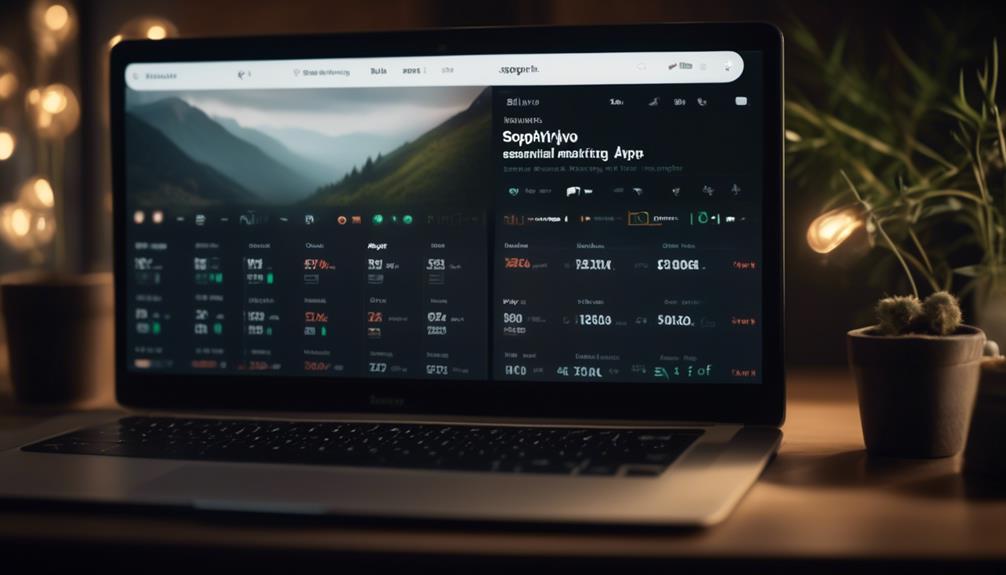
When exploring essential email marketing apps for Shopify, it's crucial to prioritize those that seamlessly integrate with the platform and offer robust automation features. As a Shopify store owner, we understand the importance of effectively reaching our customers and driving sales through targeted email campaigns. Below are some of the best email marketing apps for Shopify that can help us maximize our email marketing efforts:
| Best Email Marketing App | Features |
|---|---|
| Omnisend | – Abandoned cart recovery<br>- Email newsletters<br>- Automation workflows |
| Klaviyo | – Cart abandonment emails<br>- Segmented campaigns<br>- Integration with Shopify store |
| Constant Contact | – Email marketing service<br>- Easy-to-use campaign builder<br>- Integration with Shopify store |
These apps offer a range of features including abandoned cart recovery, segmented campaigns, and seamless integration with our Shopify store. With the ability to send targeted emails and automate various marketing actions, these apps can significantly enhance our email marketing strategy and drive engagement and sales.
Must-Have Shopify Email Marketing Apps
To enhance our Shopify email marketing efforts, the selection of must-have apps is crucial for maximizing customer engagement and driving sales through targeted campaigns. When it comes to reducing cart abandonment and increasing sales, incorporating apps like Klaviyo, Omnisend, and Mailchimp from the Shopify App Store can provide essential automation features. These platforms enable the creation of automated emails, including welcome emails and product recommendations, based on customer behavior and purchase history.
Additionally, these apps offer segmentation tools to tailor emails to specific customer segments, ultimately improving the effectiveness of our email marketing platform.
Furthermore, integrating apps such as Privy and ActiveCampaign can help expand our email list and implement advanced automation features, which are essential for the growth of our ecommerce business. By utilizing these must-have Shopify email marketing apps, we can ensure that our email campaigns are optimized for customer engagement and conversion, while also gaining valuable insights through comprehensive reporting on the revenue generated by each email.
Key Email Marketing Apps for Shopify

We have found several key email marketing apps for Shopify that have proven to significantly enhance customer engagement and drive sales through targeted campaigns. When it comes to reducing cart abandonment and increasing sales, apps like Klaviyo and Omnisend are invaluable. These platforms offer advanced features for creating automated abandoned cart emails and targeted email campaigns. They also provide robust email analytics to track the performance of your campaigns and understand customer behavior.
Building your email list is essential for effective email marketing, and apps like Privy and Wheelio are excellent for lead generation. These tools offer innovative ways to capture visitor emails and grow your subscriber base. Additionally, integrating a reliable email provider such as Constant Contact or Mailchimp with your Shopify store can streamline your email marketing efforts and ensure deliverability.
For a comprehensive approach to email marketing, it's crucial to utilize a powerful email marketing platform that seamlessly integrates with Shopify. These platforms, like Omnisend and Klaviyo, are designed specifically for ecommerce platforms and offer a wide range of features to create and automate effective email campaigns. When selecting email marketing apps for Shopify, consider the specific needs of your store and the potential for seamless integration with your ecommerce platform.
Top Email Marketing Apps for Shopify Stores
As we explore the realm of top email marketing apps for Shopify stores, it becomes essential to highlight the pivotal role these tools play in enhancing customer engagement and driving sales through targeted campaigns. Shopify business owners understand the significance of leveraging the right email marketing platform to maximize their return on investment.
Here are some top email marketing apps for Shopify stores that can help drive traffic and boost sales:
- Klaviyo: Unleash the power of personalized email marketing campaigns to connect with customers and recover abandoned carts effectively.
- Constant Contact: Create stunning email designs and automate customer journeys to enhance engagement and loyalty.
- Privy: Capture more leads and reduce cart abandonment through targeted pop-ups and email campaigns.
- Omnisend: Seamlessly integrate email, SMS, and other channels to send personalized transactional emails and drive sales.
- Mailchimp: Build and nurture customer relationships with creative email marketing campaigns and automation for Shopify ecommerce stores.
These email marketing apps empower Shopify business owners to craft compelling email designs and execute targeted campaigns that drive sales and foster customer loyalty.
Frequently Asked Questions
What Is the Best Email Marketing Software for Shopify?
We believe the best email marketing software for Shopify is one that seamlessly integrates with the platform and offers robust features like automation, customizable templates, and detailed analytics.
It should also have excellent customer support and be user-friendly.
Considering these factors, we recommend exploring options like Klaviyo, Omnisend, and Constant Contact, as they're highly regarded for their effectiveness in enhancing email marketing efforts for Shopify businesses.
Does Shopify Allow Email Marketing?
Yes, Shopify does allow email marketing. We can grab customer emails through Shopify to establish direct contact for marketing.
There are various options in Shopify to encourage customers to share their contact information for email marketing purposes.
Shopify Email allows targeting specific audiences for personalized marketing messages. Utilize Shopify Email to increase open rates, click-throughs, and ultimately boost sales through effective email marketing.
Is Klaviyo Best for Shopify?
Yes, Klaviyo is the best choice for Shopify email marketing.
It offers advanced segmentation and personalization options, centralized customer profiles, and predictive analytics for enhanced reporting.
We can leverage its integration capabilities and dynamic forms to maximize our email marketing efforts.
Plus, the free trial option allows us to experience its features firsthand.
Klaviyo's growth-centric campaigns and optimized customer engagement make it an ideal solution for ecommerce businesses on Shopify.
What Is the Best Email Marketing Platform for Ecommerce?
We've found that the best email marketing platform for ecommerce depends on specific needs and goals. Some popular options include Mailchimp, Klaviyo, and Omnisend.
Each has unique features and integrations that cater to different business models. It's essential to assess your requirements, such as automation, segmentation, and reporting, to determine which platform aligns best with your ecommerce strategy.
Researching and comparing these options can help you make an informed decision.
Conclusion
In conclusion, these top Shopify email marketing apps offer a range of essential features to help businesses effectively reach and engage with their customers.
With seamless integration and powerful tools for automation, personalization, and analytics, these apps make it easy to optimize email marketing campaigns and drive impressive results.
By leveraging these must-have apps, Shopify stores can enhance customer relationships, drive sales, and achieve a higher return on investment, making email marketing a valuable asset for their business.
Natali – Editor in Chief (Strategy and Mastery, AI Expert) Natali, our Editor in Chief, is the driving force behind our content’s strategic direction. With a keen eye for detail and a deep understanding of market trends, Natali ensures that our content is top-notch and strategically aligned with our client’s goals. Her expertise in AI helps to seamlessly integrate advanced technology into our marketing strategies, pushing the boundaries of conventional marketing.
Personalized Email Strategies
Email Marketing for Life Coaches
Master the art of email marketing as a life coach and unlock the secrets to engaging potential clients and boosting your business.

Are you a life coach aiming to broaden your influence and more efficiently engage with prospective clients? Email marketing has emerged as a crucial instrument for coaches wishing to enhance their practice and forge significant relationships with their followers.
But how can you ensure your email campaigns are not only engaging but also converting leads into clients? In this discussion, we'll explore the strategies and best practices for utilizing email marketing to its full potential as a life coach.
From growing your email list to leveraging automation and crafting compelling content, there's a lot to uncover about how email marketing can take your coaching business to the next level.
Key Takeaways
- Email marketing is an essential tool for life coaches to connect with a wide audience and stand out in a crowded market.
- It builds trust, establishes authority, and nurtures leads, resulting in a high return on investment.
- Utilizing email automation saves time by nurturing leads automatically and delivering a well-crafted email series to showcase coaching methods.
- Crafting email content based on the needs and interests of the target audience, utilizing lead magnets and compelling subject lines, can effectively acquire new clients.
Importance of Email Marketing for Coaches
Email marketing is an essential tool for coaches to effectively connect with a wide audience, build trust, and maximize their return on investment. For coaches, it's not just about sending out mass emails; it's about crafting personalized content that resonates with their audience. Through targeted email marketing campaigns, coaches can nurture leads, grow their business, and establish themselves as authorities in their field. By consistently delivering valuable insights, success stories, and tips, coaches can build trust and create meaningful connections with both existing and potential clients.
Coaches can leverage email marketing to share their unique story, philosophy, and approach, allowing them to stand out in a crowded market. This direct line of communication also enables coaches to gather valuable feedback, understand client needs, and adapt their services accordingly. With a high ROI of $38-$42 per $1 spent, email marketing is a cost-effective way for coaches to generate leads and drive business growth. It's not just about reaching a larger audience; it's about fostering meaningful relationships and delivering genuine value through every email sent.
Strategies to Grow Email Lists

After establishing the importance of connecting with a wide audience through targeted email marketing campaigns, it's crucial to now focus on effective strategies to grow our email lists.
One powerful strategy is offering a valuable lead magnet to incentivize people to join our email list. This could be a free e-book, a webinar, or a resource toolkit related to personal growth.
Additionally, sending an autoresponder to welcome new subscribers and set expectations helps to create a positive first impression and build trust.
Another effective method is providing exclusive content and short-term discounts to add value and encourage potential clients to invest in coaching services. By showcasing recent blog posts in our emails, we can't only drive traffic to our website but also demonstrate our expertise and commitment to providing valuable insights.
Utilizing storytelling in our emails is another compelling way to connect with our audience and establish credibility. By sharing real-life experiences and client success stories, we can build relationships and attract new potential clients.
These strategies not only help in growing our email list but also in nurturing our leads and ultimately growing our coaching business.
Utilizing Email Automation for Coaches
Utilizing email automation enables coaches to effectively nurture leads and maintain top-of-mind presence with potential clients, saving time and effort. With automated emails, coaches can deliver a well-crafted email series that showcases their unique coaching methods, building credibility and trust over time. This marketing strategy not only helps in driving traffic to the coach's offerings but also in generating passive income.
By segmenting their email lists and sending personalized content, coaches can establish valuable connections with their ideal clients, providing them with relevant and meaningful information.
Furthermore, email automation allows coaches to receive direct feedback, enabling them to identify pain points and bounce ideas off their potential and current coaching clients. Additionally, utilizing automated emails in a welcome sequence can be an effective way to introduce new leads to the coach's services and approach, creating a strong initial impression.
Coaches should select a reliable email provider to implement and manage their automated email marketing campaigns, ensuring that the process runs smoothly and efficiently.
Leveraging Email Content for Client Acquisition

Leveraging captivating email content is essential for acquiring new clients as a life coach, enabling us to engage with potential leads and demonstrate the value of our coaching services. When crafting email content for client acquisition, it's crucial to consider the needs and interests of our target audience. Here are some key elements to consider when leveraging email content for client acquisition:
| Lead Magnet Ideas | Subject Lines |
|---|---|
| E-books | Personalized Offers |
| Webinars | Exclusive Invitation |
| Free Consultations | Curiosity-Piquing Headlines |
| Quizzes | Problem-Solution Approach |
Utilizing an email service provider allows us to automate the delivery of welcome emails, nurturing sequences, and offers. For online coaches, leveraging compelling subject lines is essential for grabbing the attention of potential clients. Additionally, utilizing coaching methods in our email content can provide a glimpse into our expertise, making it essential for client acquisition. Ultimately, our email content should prompt potential clients to take the next step, whether that's scheduling a discovery call or signing up for a free consultation.
Integrating Email Marketing With Coaching Practice
Integrating email marketing with our coaching practice enhances our ability to nurture leads, build trust, and showcase our unique coaching methods to potential clients. By seamlessly integrating email marketing into our coaching practice, we can effectively leverage this powerful marketing platform to grow our business and establish ourselves as reputable life coaches within our coaching niche.
Here are some key ways in which integrating email marketing with our coaching practice can benefit us:
- Nurturing Quality Leads: Through consistent and personalized communication via email, we can nurture leads and guide them through the customer journey, ultimately converting them into clients.
- Showcasing Expertise: Utilizing storytelling and exclusive content in our weekly emails allows us to successfully market our unique coaching methods and establish our expertise in the field.
- Building Trust and Credibility: By delivering valuable insights and resources to our audience, we can build trust and credibility, positioning ourselves as reliable and knowledgeable life coaches.
- Generating Passive Income: Effective email marketing campaigns can also serve as a means to generate passive income, offering valuable lead magnets and exclusive content to subscribers.
Can the Email Marketing Strategies Used for Hospitals Also Work for Life Coaches?
Yes, email marketing strategies healthcare can be effective for life coaches as well. Both industries aim to connect with and engage a specific audience. Personalized content, targeted messaging, and clear calls to action are universal principles that apply to marketing in both healthcare and life coaching.
Frequently Asked Questions
How Do You Advertise as a Life Coach?
We advertise as life coaches by leveraging our unique story, expertise, and value proposition to attract potential clients.
We focus on building trust, showcasing our results, and connecting with our audience through various channels.
By understanding our target market and effectively communicating our message, we create a strong online presence and engage with potential clients.
Our goal is to establish credibility, generate interest, and ultimately convert leads into paying clients.
How Do Life Coaches Attract Clients?
We attract clients by offering valuable lead magnets, sharing personal stories, and insights to connect and build credibility.
Our consistent and engaging email communication nurtures leads, builds relationships, and generates potential clients.
This approach creates business growth and long-term success for us as life coaches.
How Does Email Marketing Help Coaches?
Email marketing helps us maintain consistent communication with potential clients, showcase our unique coaching methods, and gather direct feedback about our business.
It enables us to tell our story to a large audience, build trust, and create value for existing and potential clients.
Through effective email marketing strategies, we can generate passive income and enjoy a high return on investment while tailoring our services to meet client needs.
How Do I Get New Clients for Life Coaching?
To get new clients for life coaching, we connect with potential clients by offering valuable free gifts to build our subscriber list.
We nurture lasting relationships with existing clients through consistent communication and personalized content.
Gathering direct feedback from clients is crucial, and we implement effective call-to-actions in our emails to prompt potential clients to take action.
This approach helps us attract and convert interested prospects into new coaching clients.
Conclusion
In conclusion, email marketing is the lifeblood of a life coach's business, like water to a flourishing garden.
It allows us to nurture relationships, showcase our expertise, and attract potential clients.
By utilizing strategic email content and automation, we can grow our coaching practice and engage with our audience in a meaningful way.
So, let's water our coaching garden with the power of email marketing and watch our business bloom.
Natali – Editor in Chief (Strategy and Mastery, AI Expert) Natali, our Editor in Chief, is the driving force behind our content’s strategic direction. With a keen eye for detail and a deep understanding of market trends, Natali ensures that our content is top-notch and strategically aligned with our client’s goals. Her expertise in AI helps to seamlessly integrate advanced technology into our marketing strategies, pushing the boundaries of conventional marketing.
-

 Email Automation3 weeks ago
Email Automation3 weeks agoAutomated Email Marketing 101: A Beginner's Tutorial
-

 Email Warmup1 month ago
Email Warmup1 month agoWarm Follow-Up Email
-
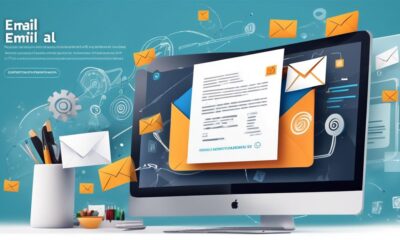
 Email Design Hub2 months ago
Email Design Hub2 months ago3 Essential Tools for Email Marketing Design Success
-

 Email Marketing4 weeks ago
Email Marketing4 weeks agoWhat Is Email Marketing Advantages and Disadvantages
-
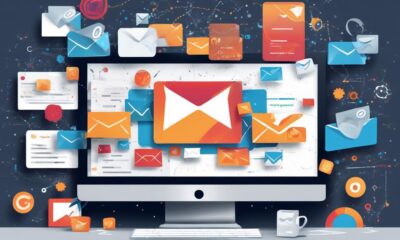
 Email Marketing4 weeks ago
Email Marketing4 weeks agoWhy Email Marketing Is Effective
-

 Email Template4 weeks ago
Email Template4 weeks agoCrafting the Perfect Book Club Invitation Email Template
-
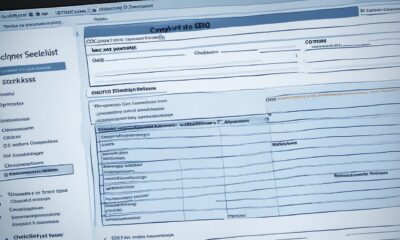
 Search Engine Optimization4 weeks ago
Search Engine Optimization4 weeks agoSEO Checklist: Enhance Your Site’s Performance
-

 Email Marketing4 weeks ago
Email Marketing4 weeks agoDoes Email Marketing Work in 2024
